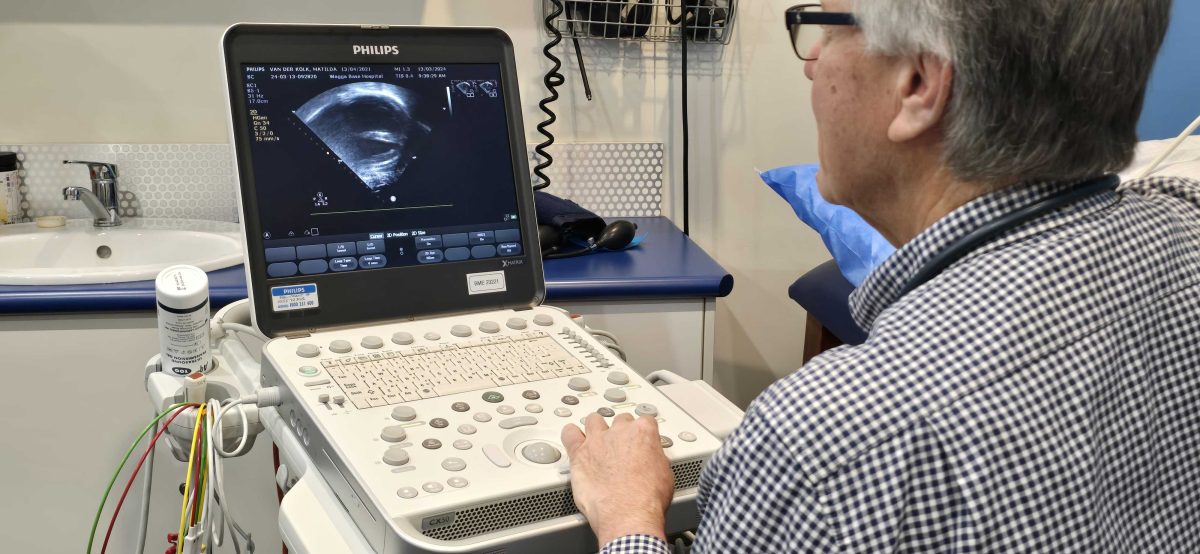
Sydney Children’s Hospital Network Paediatric Cardiologist Dr Stephen Cooper uses the new paediatric cardiac echo machine (CX50 Ultrasound System) at Riverina Paediatrics. Photo: Shri Gayathirie Rajen.
Riverina babies now have access to their very own paediatric cardiac echo machine in the region instead of needing to travel to Sydney or Canberra thanks to a local father and nurse.
Murrumbidgee Local Health District transitional nurse practitioner in diabetes education Mark Taylor donated the CX50 Ultrasound System, worth $106,000, to Wagga Wagga Base Hospital’s Paediatric Ward.
Mr Taylor won the Humpty Dumpty Foundation’s Michelle Beets Award for Inspirational Paediatric Care and received $25,000 worth of medical equipment which was used to purchase the ultrasound, with the remaining funds coming from the NSW Government and the Lorna Blackwood Estate.
Mr Taylor knows all too well the struggles young families go through having to travel to the major cities for their baby’s medical treatments.
When his son Oliver was born with a cardiac condition he required multiple surgeries and regular cardio reviews with a paediatric cardiologist in Sydney.
The now 25-year-old was born with Tetralogy of Fallot, which affects heart structure and normal blood flow through the heart. The defect occurs during pregnancy when the baby’s heart does not form correctly in the womb.
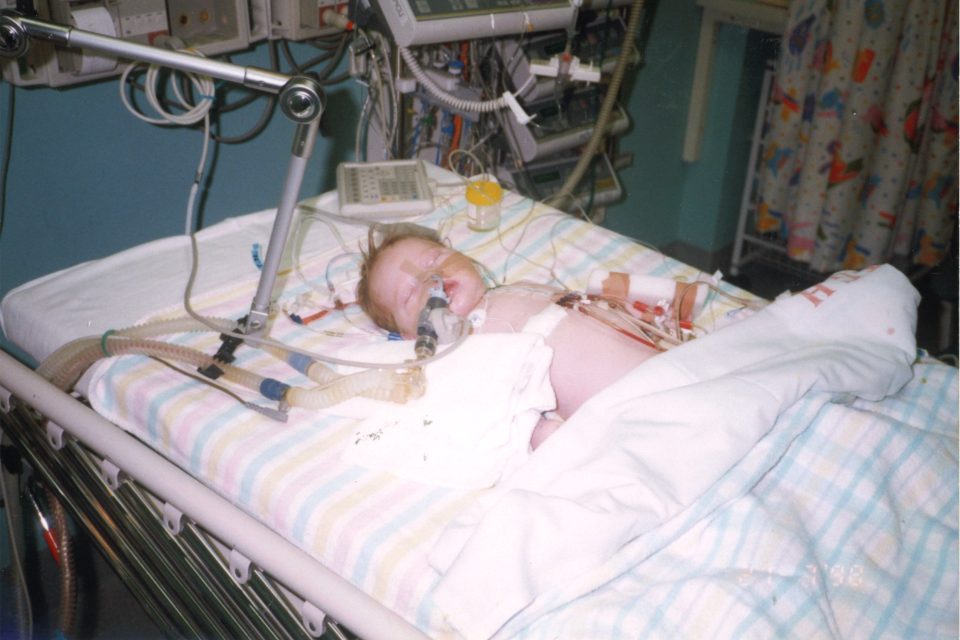
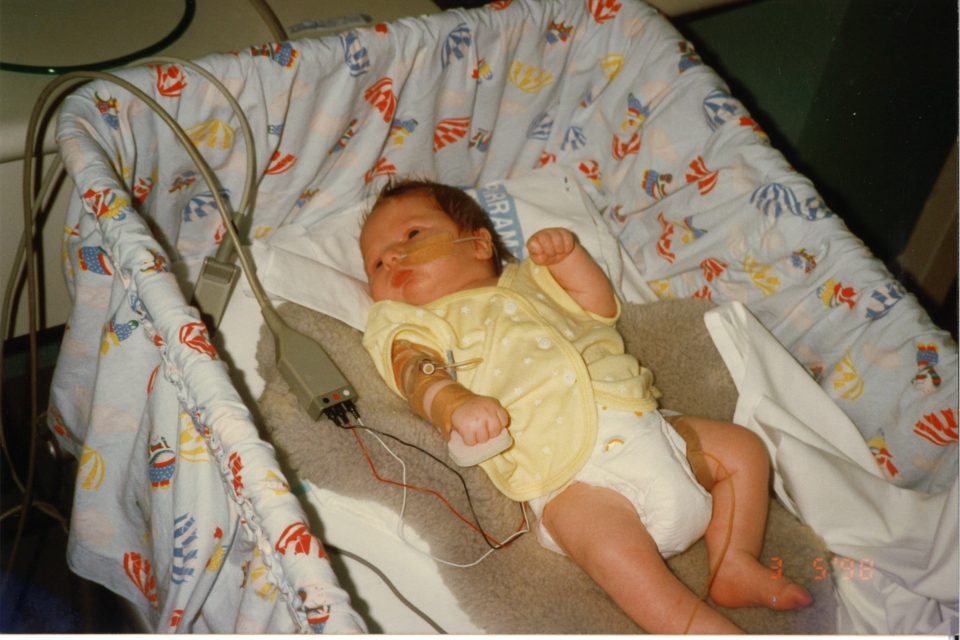
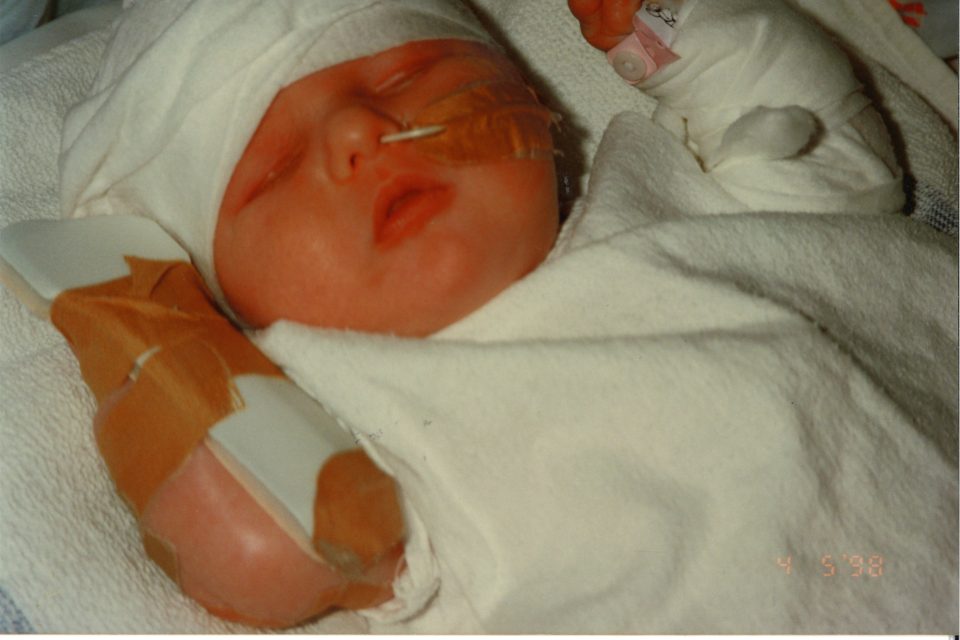
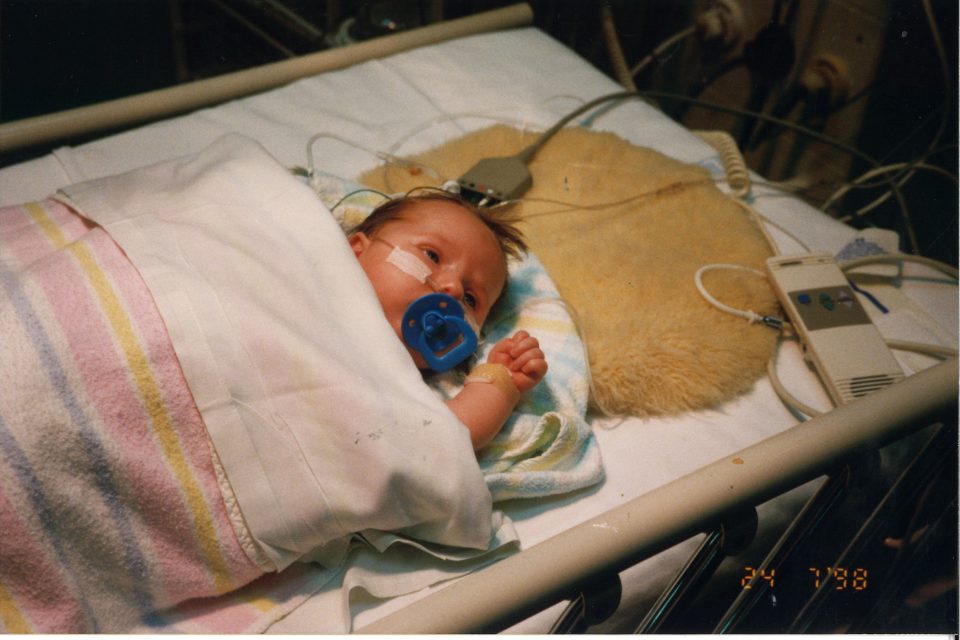
“It had a big impact on our life to travel to Sydney for surgeries, checkups and cardiology appointments. It put a strain on life at the time,” Mr Taylor said.
“At least once, and sometimes twice, a year our son used to have to get a cardio echo done to check the health of his heart.
“The machine will benefit heart kids and their families greatly in the Riverina.”
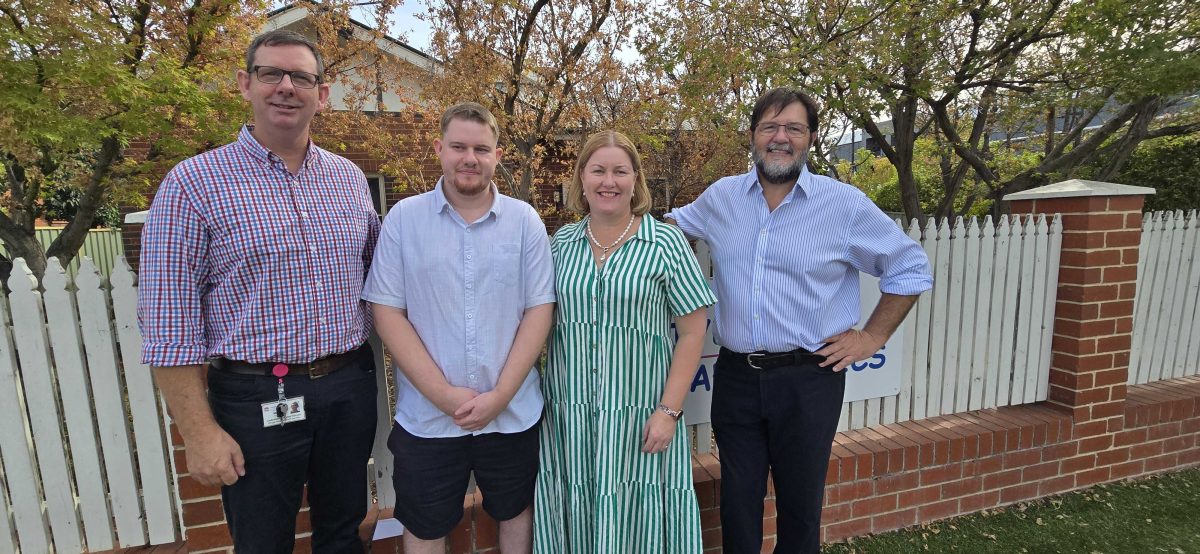
Murrumbidgee Local Health District transitional nurse practitioner in diabetes education Mark Taylor with his son Oliver, wife Cathrine, and Oliver’s Paediatrician and Clinical Director Paediatrics for Wagga Base Hospital Dr John Preddy. Photo: Shri Gayathirie Rajen.
The CX50 Ultrasound System will streamline the health service delivery to the local community as well as support remote collaboration between hospitals to review, and accurately diagnose, suspected cardiac, vascular, renal, and cranial conditions for hundreds of children and neonates in real-time.
This will result in clinicians being able to immediately care for their unwell patients without having to transfer and delay treatment to a tertiary hospital.
The ultrasound will be used by visiting paediatric cardiologists as remote images can also be reviewed in real-time by the cardiac service at Westmead Children’s Hospital. This will allow accurate cardiac diagnosis without the need to fly the patient to a tertiary centre, resulting in fewer transfers of an acutely unwell child.
Oliver’s paediatrician and Clinical Director Paediatrics for Wagga Base Hospital Dr John Preddy said between one and two per cent of babies in the region were born with a heart defect.
“Being able to diagnose early and effectively is key to their long-term management,” Dr Peddy said. “It’s very helpful for us to have a machine and save families and children having to travel.”
The ultrasound machine has been in use since January and is set to help about 200 patients a year.







